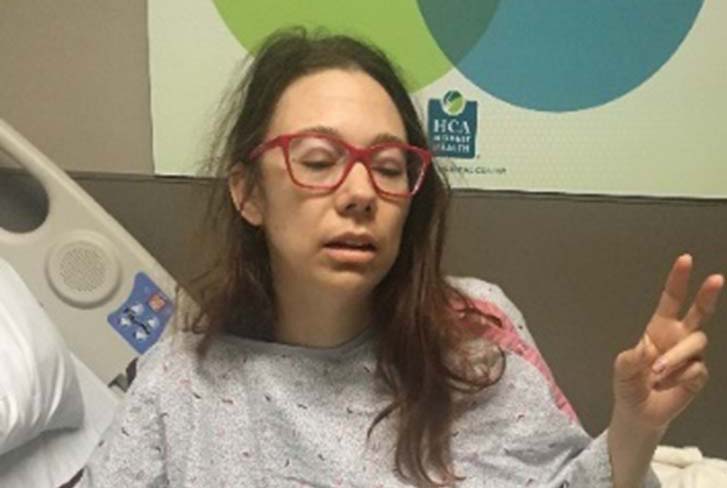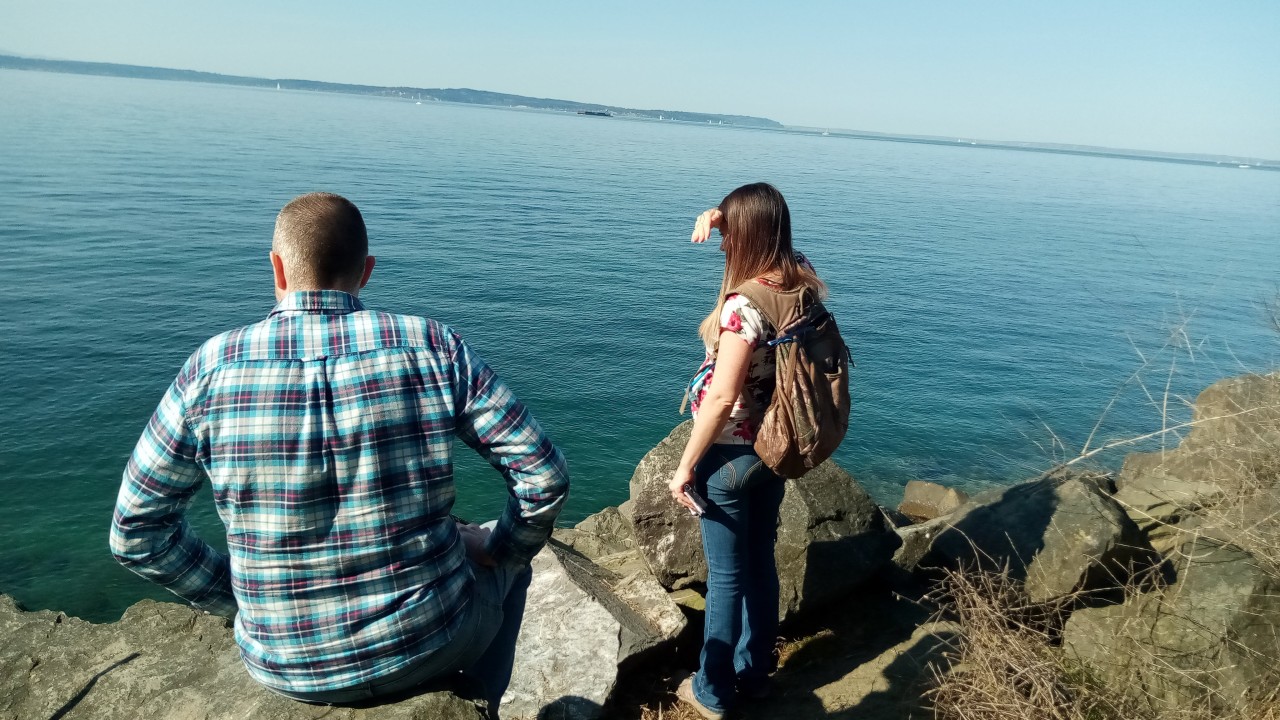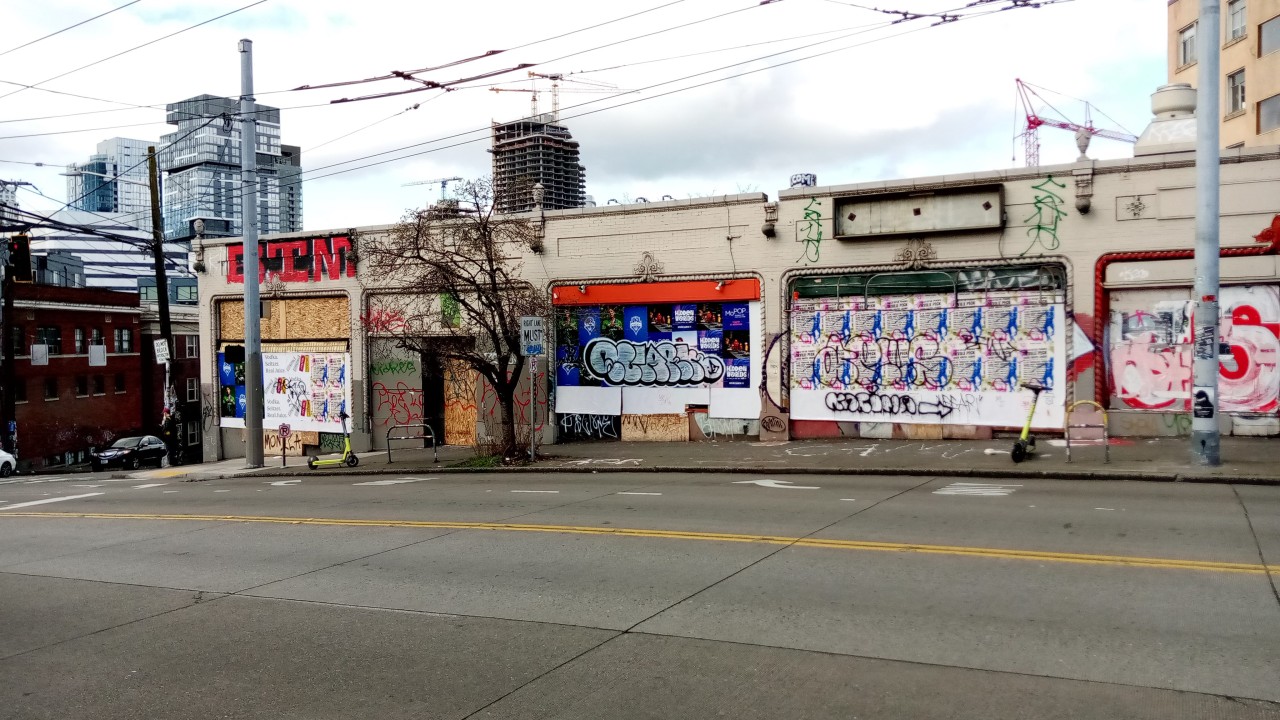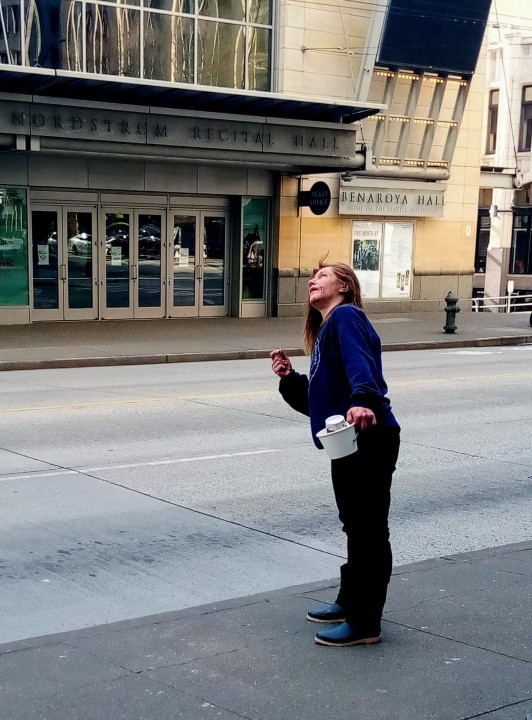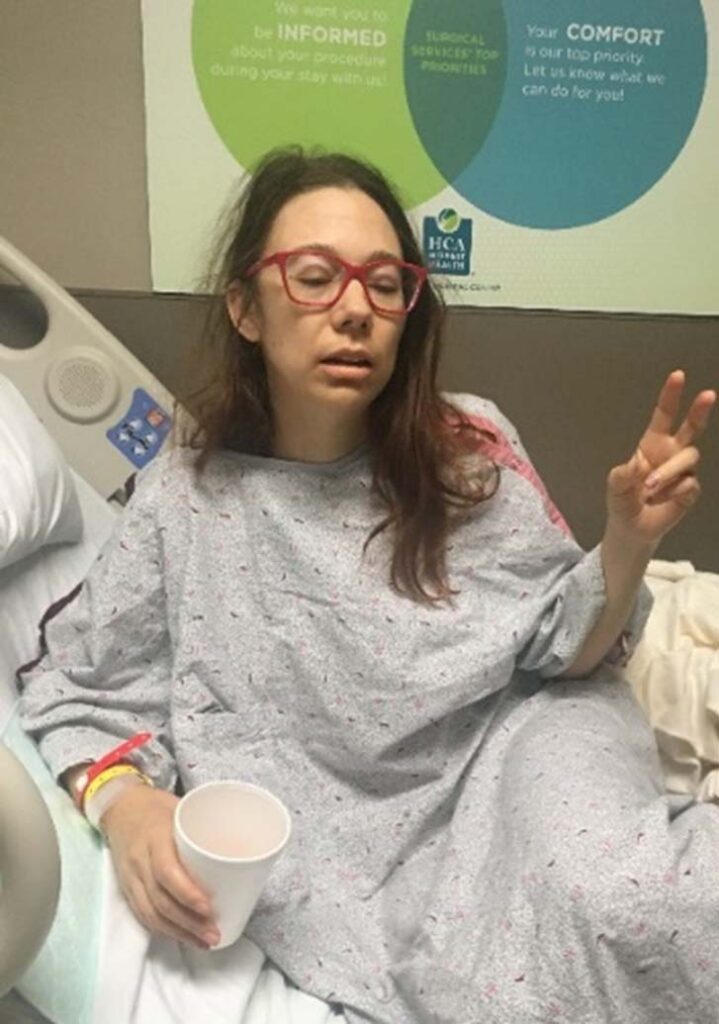
On February 8, 2024, I will moderate a panel of Kansas City writers at the AWP (Association of Writers and Writing Programs) Conference, taking place at the Kansas City Convention Center. Our panel includes Kansas City journalists Barb Shelly and Lewis Duiguid, storyteller Br. John Anderson, and KCAI Creative Writing/Fibers student Carmen Cantu. Our presentation, entitled Beyond Books: Alternative Careers in Writing, will include a short reading by each of us from a longer piece of writing. I will be reading a short excerpt from my essay entitled “My Hysterectomy,” about my maternal family history with reproductive health issues, resulting in my own experience grappling with endometriosis and an eventual hysterectomy. This story has not yet been published and I’m looking for the right source that may be interested in an instructive and confessional piece about a common and yet still misunderstood women’s condition. I’m also interested in working collaboratively with sketch artists who would accompany the writing with anatomical artistic interpretations.
My Endometriosis:
Excerpt from “My Hysterectomy”
My endometriosis was a surprise.
I always thought that was my sister’s deal. She had such heavy and painful periods she could only lay on the couch for days at a time with a heating pad and 5 ibuprofens. Her period took a toll on her work life.
My period was painful but I always thought hers was worse.
When the doctor performed surgery to remove an ovarian cyst, a complex mass that was finally discovered amid the pursuit of finding and ending the source of my doubling over, she discovered my endometriosis.
My endometriosis was severe. Widespread.
Because of my endometriosis, I also had tubal torsion. After the surgery my doctor said, “your Fallopian tubes were handcuffed behind your back.”
She said she loosened them, so that they were slightly untwisted and able to hang limply at my sides. She did little else. Everything was “stuck together like cement” and she was afraid to “tinker with it.”
My hysterectomy was not yet presented as an option, or even a consideration.
It would be “too dangerous,” “too high risk.” A hysterectomy should “be avoided at all costs.” There was a “better, safer option.” A hormone treatment that would stop the growth of the bad tissue. An easy shot. 3Xs in the butt.
This shot was not easy.
This shot caused me much mental and emotional pain.
My brain became foggy. My memory unstable. One time I withdrew $60 from an ATM, left it in the machine, and drove away before realizing I didn’t have my money.
My work became so challenging. Almost impossible. I lost all confidence in my ability to do my job.
But as with our periods, society says to keep quiet about our hormones.
I suffered for months. The treatment was almost worse than the pain from my endometriosis.
With the shot, my period did NOT improve. My bleeding did not let up. It grew heavier, lasted longer.
My period grew tissues that passed through my canal like fleshy marbles sporting varicose veins.
Like everything with a woman’s body, a hysterectomy should be a choice.
But sometimes it’s not a choice.
When my mom was in her 30’s, her periods were so bad she was anemic.
One day her period wouldn’t stop. She bled until a blood transfusion was required.
This was before HIV was an epidemic. The blood she received was not tested for HIV. My mom did not contract HIV from her transfusion.
Her doctor did not stop with a transfusion. He insisted my mom needed an emergency hysterectomy. He was probably right.
Still, these procedures were overprescribed at the time. Without much choice, or even consideration.
When my father questioned the necessity of so drastic a measure, my mom’s doctor became engaged. After removing my mom’s uterus, he hauled it into the waiting room in the palm of his hand and shoved it in my father’s face like a sideshow specimen to display just how sick the organ had become.
My mom should have had the choice to deny her doctor the right to parade her organ around like his own personal plaything. But that was the 1980’s.
